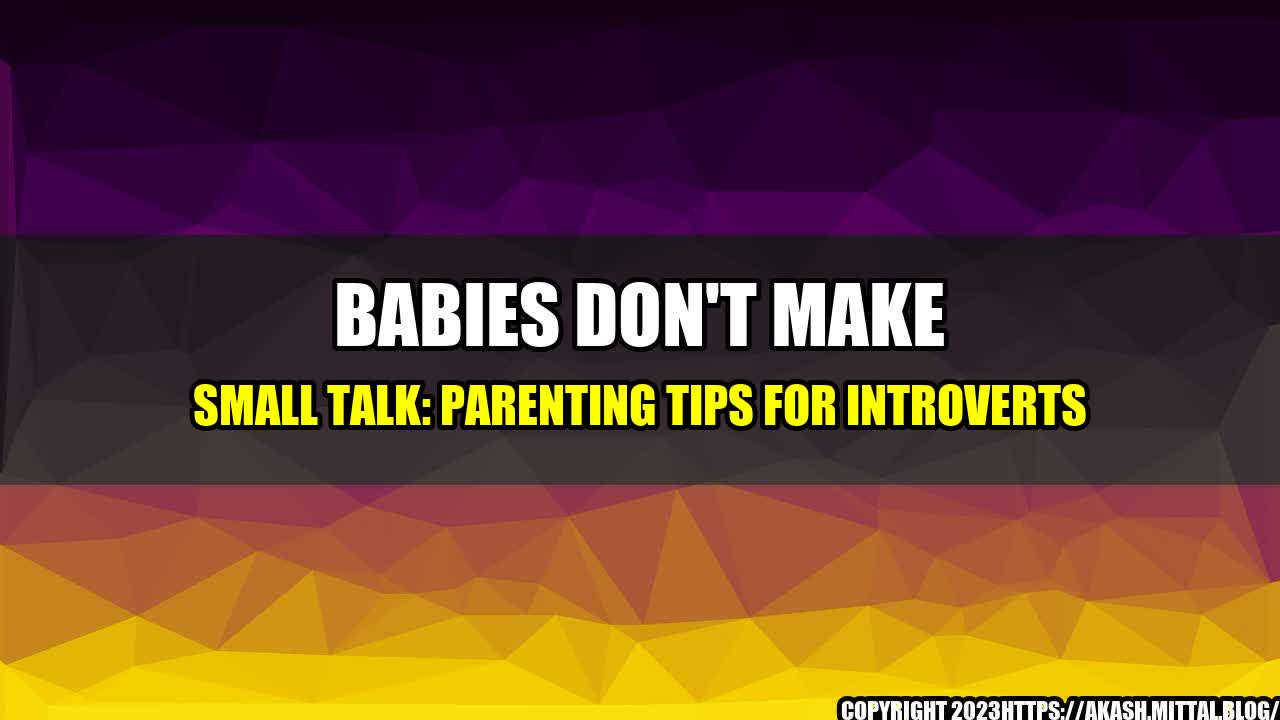Being an introverted parent can be a challenge, especially when it comes to raising young children who constantly demand attention and interaction. But just because you are naturally more reserved and prefer solitude, it doesn't mean you can't be a great parent. Here are some tips for introverted parents to help navigate the world of parenting with ease and confidence.
When Sarah had her first child, she was overwhelmed by how much attention her baby needed. As an introvert, the constant noise and activity of having a newborn around was draining her energy and making it difficult for her to enjoy motherhood. But then Sarah discovered the power of quiet time for both herself and her baby. She began to intentionally schedule time in her day to simply be present with her baby without any distractions or other people around. This gave them both the opportunity to recharge and connect in a peaceful and meaningful way.
Research shows that introverted parents often have a unique ability to tune into their child's needs and emotions. They are more likely to notice subtle changes in their baby's behavior and respond appropriately. Additionally, introverted parents tend to prioritize quality over quantity when it comes to time spent with their children. They may not be the type to constantly engage in active play or attend social events with other parents and children, but they make up for it by being fully present and attentive when they are with their child.
Parenting as an Introvert: How to Thrive in a World of Baby Talk and Playground Small Talk
- Take advantage of quiet moments to recharge and connect with your baby.
- Embrace your strengths as an introverted parent, such as your ability to tune into your child's needs and prioritize quality time.
- Remember that it's okay to say no to social events and other activities that drain your energy. Prioritize self-care and do what feels right for you and your family.
and Case Studies
One introverted mom shared that she struggled with the pressures to be a "perfect" parent who was always engaged and available to her children. But over time, she learned to let go of those expectations and trust her own instincts. She realized that her introverted nature actually gave her an advantage in being able to pick up on her children's needs and provide a calm and soothing presence for them.
Another introverted dad described how he struggled with finding ways to connect with his teenage son who was always out with friends and didn't seem interested in spending time with him. Instead of pushing for more interaction, he found ways to support his son from a distance, such as sending encouraging texts and leaving notes of praise around the house. Over time, their relationship deepened and his son began to seek out his dad for advice and support more frequently.
Practical Tips
- Schedule in alone time and prioritize self-care activities.
- Find ways to connect with your child that feel natural to you, whether that's quietly sitting together and reading, going for a walk, or simply having a calm conversation.
- Don't be afraid to ask for help or delegate responsibilities to others, especially if you're feeling overwhelmed or burnt out.
- Focus on quality time over quantity. Remember that short periods of focused attention and connection can be just as meaningful as hours of activity and play.
- Experiment with different communication styles, such as written notes, recorded messages, or shared interest projects, to find ways to support and connect with your child on a deeper level.

Curated by Team Akash.Mittal.Blog
Share on Twitter Share on LinkedIn